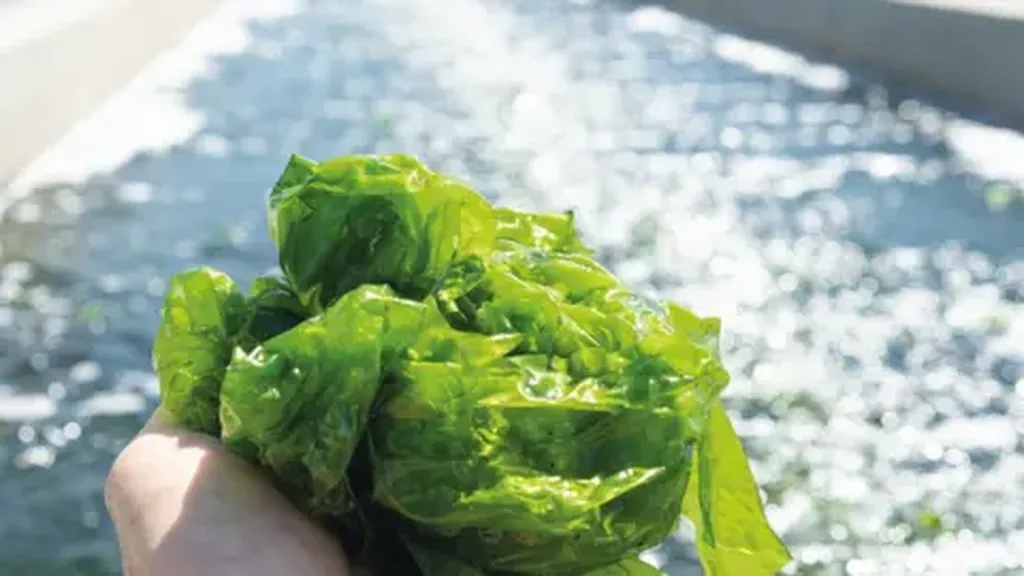In the quest for sustainable agriculture solutions, a team of researchers led by Annamaria Di Serio from the Department of Chemistry and Biology at the University of Salerno has uncovered promising potential in marine microalgae. Their study, published in the journal *Scientific Reports* (which translates to “Reports of Science”), explores how extracts from two specific marine microalgae species, *Nannochloropsis gaditana* and *Porphyridium sp.*, can significantly boost the growth and quality of baby leaf lettuce. This research could have far-reaching implications for the agricultural sector, particularly in the context of climate change and the growing demand for sustainable farming practices.
The study focused on the application of biostimulants derived from these microalgae, which have shown potential to enhance yields in various crops. Di Serio and her team aimed to fill a critical gap in the research by evaluating the effects of these specific marine microalgae on leafy vegetable crops. “The application of biostimulants derived from microalgae may represent a promising strategy to enhance fruit and vegetable yields, particularly in the context of ongoing climate change,” Di Serio explained. This statement underscores the urgency and relevance of their work in today’s agricultural landscape.
The researchers first chemically characterized extracts from both *Nannochloropsis gaditana* and *Porphyridium sp.* and then applied these extracts via foliar spray in aqueous solution. The results were striking. At the end of the cultivation cycle, both treatments significantly enhanced nitrogen assimilation and water uptake, leading to increased biomass production. Plants treated with the microalgae extracts exhibited a 31% increase in fresh weight, along with a higher leaf number and plant height. Additionally, the treatments improved nutrient use efficiency and contributed to more effective water management.
Gene expression analysis further revealed that the extracts modulated the expression of genes involved in nitrogen uptake and assimilation, supporting the observed improvement in nitrogen agronomic efficiency in lettuce. “Collectively, these findings support the potential of *N. gaditana* and *Porphyridium sp.* as eco-friendly biostimulants capable of enhancing the sustainability and efficiency of leafy vegetable production systems,” Di Serio noted.
The implications of this research are substantial for the agricultural sector. As climate change continues to pose challenges to traditional farming practices, the development of sustainable and efficient biostimulants could revolutionize crop production. The use of marine microalgae extracts not only enhances yield but also promotes eco-friendly farming practices, aligning with the growing global emphasis on sustainability.
This study opens up new avenues for future research and commercial applications. The agricultural industry could benefit greatly from the adoption of these biostimulants, leading to increased productivity and reduced environmental impact. As Di Serio and her team continue to explore the potential of marine microalgae, their work could pave the way for innovative solutions that address the pressing needs of modern agriculture.
In conclusion, the research led by Annamaria Di Serio and her team at the University of Salerno represents a significant step forward in the quest for sustainable agriculture. Their findings, published in *Scientific Reports*, highlight the potential of marine microalgae extracts as powerful biostimulants that can enhance crop yields and promote eco-friendly farming practices. As the agricultural sector continues to evolve, the insights gained from this study could shape the future of sustainable food production, offering hope for a more resilient and efficient farming landscape.

